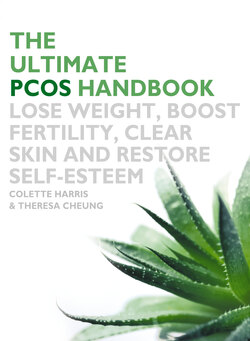Читать книгу The Ultimate PCOS Handbook - Theresa Cheung - Страница 34
PCOS AND THE PERIMENOPAUSE
ОглавлениеPerimenopause can often go unnoticed in women with PCOS, as they are used to having irregular periods. Some women with PCOS say that, instead of their cycles becoming more irregular, they actually become more regular. A possible explanation for this is that the hormonal swings and high oestrogen and androgen levels associated with PCOS may lessen as a woman nears the menopause, when oestrogen and androgen levels naturally lower.
Many women with PCOS assume that because they’ve always had irregular periods they won’t go through the menopause. This isn’t the case. Whether you have PCOS or not, the menopause causes a significant decrease in oestrogen and this can increase the risk of heart disease, osteoporosis and cancer, so you do need to manage it.
Many of the symptoms of the menopause are related to this drop in oestrogen, and you can still expect these changes if you’ve got PCOS.
According to research, the high levels of androgen in PCOS may fall during the menopause, sometimes to normal levels, although they usually remain higher than for women who don’t have PCOS. But many androgen-related problems, such as increased hair growth (hirsutism) and acne, continue (although they rarely get worse).
The risk of heart disease increases for all women after the menopause, but women with PCOS are at even higher risk due to raised androgen levels, unhealthy changes to blood fats and obesity. In addition, 40 per cent of women with PCOS develop Type 2 diabetes by the age of 40, which further increases the risk of heart disease.
For this reason you should make sure your doctor regularly checks your blood fat levels and blood pressure.
‘I always thought menopause would be the end of it all. What a shocker to find out that this is a myth!’
Linda, 49
